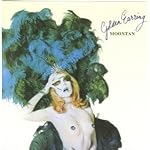Record Store Day
Today is Record Store Day—a somewhat new, um, international holiday. Surely conceived as a backlash against the impersonality of iTunes and big, corporate-owned, online retailers, Record Store Day celebrates the independent, locally owned, bricks-and-mortar record store. This is a good thing, and I hope these businesses can continue to survive in the digital age.
I’ll admit, however, that I myself have not been much of an actual, fiscal supporter of the local record stores in my neighborhood in recent years. The reason is simple, and as my wife put it, succinct: I’ve gotten old. When I walk in and find the music piped through the store’s stereo to be unwelcoming, if not off-putting; when I peruse the stacks and not only find nothing I want, find that ninety percent of it is completely unfamiliar to me; it’s clear that yes, I’m old.
That’s okay; I’m cool with that. The record stores in my neighborhood are not for me. I’m still happy to know they’re there, pleased to see (as I did yesterday) a young woman on the bus clutching a shopping bag from one of them.
The record store is a land of escape and discovery, in a way that no online store can be. In my student days it was a frequent ritual: Flip through the stacks, pause at an interesting title, read the liner notes and song list, track down that one elusive item to fill a gap in my collection, or find something utterly new to my knowledge, weigh the cost of my desire and the cash in my pocket against the need to buy groceries that week, and at the end of the day take home one or several prizes—or none, if it came to that—and cue up a magical musical realm.
Once, when I was a sophomore in college, it was the first Saturday of spring break and both campus and the city were a ghost town. It was early-spring cool, windy and overcast, with everything still a little grey around the edges.
The sidewalks of the main drag were almost deserted when I walked into the secondhand record store Wazoo Records. I was only partly in a mood to browse; partly I wanted a refuge against the chill for a little while.
Nothing in the stacks really appealed to me, but one thing kept catching my eye. It was an LP, sitting on a high shelf behind the counter, among the other rarities, protected by a clear plastic sleeve. The almost-naked woman on the cover was the eye-catcher, in a prurient way. It took several intermittent sidelong glances before I finally read the title.
Moontan, by Golden Earring.
 That clicked in my brain: Of course! That crappy cover on the CD issue that I owned was a fig leaf, a record company’s cheap, cop-out replacement for the much more risqué original. I had to have it, and not merely for the naughty cover art. I was willing to bet it also contained an inner sleeve and liner notes missing from the CD, stuff from an era when records were albums, not just collections of songs, in which the music was the centerpiece of a larger, complete package.
That clicked in my brain: Of course! That crappy cover on the CD issue that I owned was a fig leaf, a record company’s cheap, cop-out replacement for the much more risqué original. I had to have it, and not merely for the naughty cover art. I was willing to bet it also contained an inner sleeve and liner notes missing from the CD, stuff from an era when records were albums, not just collections of songs, in which the music was the centerpiece of a larger, complete package.
The price, however, was daunting. It might have been as much as twenty-five dollars, which now doesn’t seem like all that much but in those unemployed-student days meant the difference between eating out versus eating ramen. If I bought it, it certainly would be the only record I could afford that day, and would preclude another record store visit for the next few weeks as well.
So I dithered about it, and continued to wander the stacks, hoping something equally appealing—and significantly cheaper—would pop up. But nothing did, and ultimately I walked up to the counter and told the owner I wanted to buy the Moontan LP. He smiled, took it down, held it gently by its edges for a moment as if regarding an old friend for the last time, peered at the price tag, looked up at me, and said, “Nah, I can’t sell it to you for that—”
He paused for half a beat, just long enough for me to start to think, “shit, now I’ll never afford it.”
“—how about ten bucks?”
I was dumbfounded. It took me a moment to realize he’d cut the price, not raised it. I stammered, then agreed, and he bagged it up and sent me on my way.
I don’t know why he did it. Pity on a long-haired college kid? A vague sense that it was going to an appreciative home? A camaraderie across the generations, a sharing of a great slice of rock-’n’-roll from one music lover to another? Or just tired of having it on his shelves, taking up space?
I’ve no idea, and no matter. Whether it was his ploy or not, he certainly gained a regular customer for the remainder of my years there.
Wazoo Records closed its doors in 2006 after 31 years in business, surely one of a multitude of victims of the digital age. Here’s hoping other record stores may continue to thrive, and that Record Store Day remains a celebration of a vital industry, and not a requiem for a dying breed.




